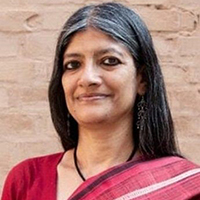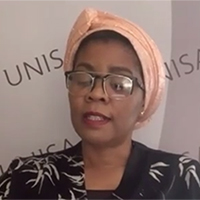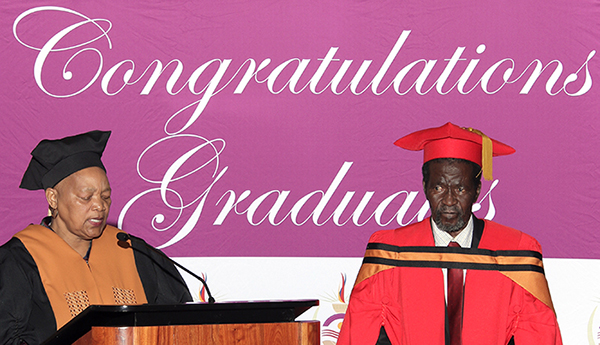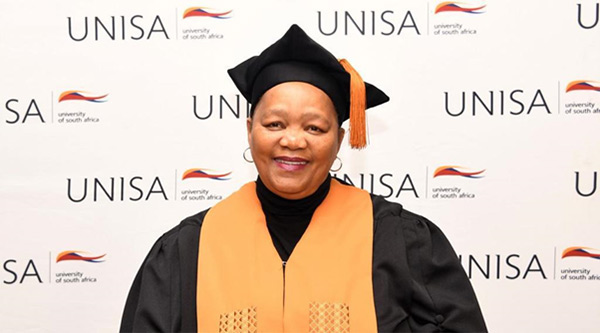

Prof Jimi Adesina
The South African Research Chairs Initiative (SARChI) Chair in Social Policy at Unisa, in partnership with the Council for the Development of Social Science Research in Africa (CODESRIA) and the United Nations Research Institute for Social Development (UNRISD), recently co-hosted the biennial Social Policy in Africa Conference.
The third edition, which was hosted virtually, took place from 22 to 24 November 2021 under the theme Development, Democracy and Social Policy: Remembering Thandika Mkandawire. The opening ceremony was viewed by a broad representation of participants from across the world.
"The (tripartite) partnership is grounded in a shared vision of social policy and the quest for a transformative approach to human wellbeing," said Prof Jimi Adesina: SARChI Chair in Social Policy, University of South Africa.
He added that the broader vision of social policy is anchored in the research projects that Prof Thandika Mkandawire initiated in the mid-1990s at CODESRIA, as its executive secretary, and later expanded at UNRISD, as its director, under the theme of Social Policy in a Development Context in the early 2000s.
The partners co-organising the conference were, and continue to be, inspired by Prof Mkandawire’s work and his capacity for innovative thinking, both intellectually and institutionally. Following Prof Mkandawire’s passing on 27 March 2020, the third edition of the Social Policy in Africa Conference was organised in honour of his memory, and as a celebration of his works and vision. In addition, to propagate his works, the annual Thandika Mkandawire Memorial Lecture was inaugurated.
"The Social Policy in Africa Conference is taking place at a time when CODESRIA has taken its rightful place as a premier social science organisation on the continent," stated Dr Godwin Murunga, Executive Secretary: CODESRIA, in his welcome address.
He explained that not only were they convening the conference to celebrate interesting ideas, but they had also taken positive steps in ensuring that the outputs emanating from the conference would be published and made available to researchers, for posterity. CODESRIA, together with the SARChI Chair, has published the proceedings of the inaugural conference in a book, edited by Prof Jimi Adesina, entitled Social Policy in the African Context.
Dr Murunga added that Prof Mkandawire's contributions were not only about framing social policy in terms of development, but also about insisting that development is hollow, unless it is imbued with a deeply democratic spirit.

Dr Godwin Murunga |

Dr Katja Hujo |

Prof Thandika Mkandawire |
Since its inception in 2017, the conference has become a leading scholarly platform for the exchange of knowledge, debate and discussion on social policy in Africa.
In providing background about UNRISD, Dr Katja Hujo, a representative of the UNRISD director, stated that the institute’s mandate is to conduct research on contemporary challenges to social development, to shed light on the interlinkages between economic and social development policies. "These were one of the key objectives for the methodological approaches followed by Prof Thandika Mkandawire," said Dr Hujo.
"As a critical aspect of research and policy that seeks to enhance people’s wellbeing, the SARChI Chair, CODESRIA and UNRISD share a common concern with critical approaches, with social policy that is focused on equitable and inclusive development," noted Prof Puleng LenkaBula: Principal and Vice-Chancellor, University of South Africa.
In her reflection, Prof LenkaBula remarked that Prof Mkandawire had a remarkedly fertile mind, which allowed him to bring his enormous energy to bear on a diversity of intellectual matters and institution-building across a range of issues, covering economic development, governance, democracy and social policy.
Prof Jayati Ghosh, a development economist from the University of Massachusetts in the USA (formerly of Jawaharlal Nehru University, New Delhi in India), delivered the keynote address on Making Social Policy Effective in an Ever More Unequal World.
Giving context on the status of the global economy, Prof Ghosh said global capitalism has become moribund – neoliberalism, broadly speaking, has undermined all the checks, balances and limits to capital’s unfettered power. "Global GDP has decelerated over the past half-century... and because of that, global investment growth has been highly volatile," she explained.
The Covid-19 pandemic has made things far worse, in her view, particularly for the developing world, which contributes to the global economy. "In 2020, the advanced world did worse in terms of their proportioned decline, emerging economies did badly but not quite as bad, overall."

Prof Jayati Ghosh |

Prof Puleng LenkaBula |
She rhetorically asked why there is such divergence between rich countries and the developing world, particularly low-income nations. In her response she pointed to vaccine apartheid, adding that vaccine production and distribution have become stark signs of inequality during the pandemic.
"There was the vaccine grab by the rich countries; protection of intellectual property rights of pharmaceutical companies by rich country governments; use of vaccination distribution to promote both nationalism and diplomatic soft power – this, despite the fact that a pandemic can be overcome only when it is overcome everywhere," Prof Ghosh stated.
Another reason for this inequality is that fiscal responses have been widely divergent across advanced and developing economies, with fiscal spending dominated by a few northern countries.
Prof Ghosh added that between January 2020 and September 2021, advanced economies as a group provided significant additional funds in terms of increased public spending and revenues foregone through tax concessions, and through equity, loans and guarantees, amounting to 23.1 tax percent of 2020 GDP, on average. Developing countries spent less than they did after the global financial crisis of 2008/09, because of sovereign debt overhangs, austerity measures still being imposed by the International Monetary Fund, fear of capital flight and credit downgrades in the emerging market economies.
Furthermore, the Covid-19 pandemic has exposed the greater vulnerability of informal workers, because of the intensity of lockdowns and the lack of social protection. Another aspect of inadequate social policy is hunger. As Prof Ghosh noted, the pandemic is already causing dramatic increases in food insecurity and hunger. Inflation, which is driven by global commodity price increases, is adding to these problems.
Prof Ghosh remarked that all of these issues provide a solid argument for a universal social protection floor, with nationally defined sets of basic social security guarantees to ensure – at a minimum – that, over the life cycle, all those in need have access to essential healthcare and basic security.
"Prof Thandika Mkandawire always emphasised that social policy is economic policy: it can enable and manage transitions; provide buffers to shocks and damage due to change; enhance domestic demand; alter income distribution in more progressive directions; assist industrialisation and shift to higher value-added activities," she emphasised.
In conclusion, she explained that it is now evident that the lack of adequate social policy is a major handicap in crises such as the pandemic, and that will become increasingly evident because of climate-induced crises.
Developing countries have been wary of more proactive social policy, because of actual and self-imposed fiscal constraints. These can, however, all be dealt with if there is sufficient political will. Progressive social policy is an important element on the path out of the current multiple crises facing humanity.
Click on these links to view the conference website and recorded sessions:
* By Mpho Moloele, PR and Communications, Department of Research, Innovation and Commercialisation
Publish date: 2021/11/30
 Unisa empowers award-winning agro-cosmetics entrepreneur
Unisa empowers award-winning agro-cosmetics entrepreneur
 Unisa initiative offers early-career academics "a stepping stone towards greatness"
Unisa initiative offers early-career academics "a stepping stone towards greatness"
 Seasoned meteorologist joins Unisa
Seasoned meteorologist joins Unisa
 Unisa celebrates the 2023 and 2024 Hiddingh-Currie Award winners
Unisa celebrates the 2023 and 2024 Hiddingh-Currie Award winners
 Unisa celebrates a project of hope, dignity and student success
Unisa celebrates a project of hope, dignity and student success